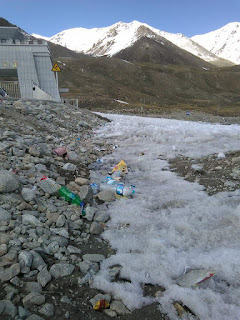Pakistan has recently experienced severe internet outages as a result of the government's installation of a strict firewall system. This move has had profound consequences, particularly for the freelancing community. Pakistani freelancers are officially listed as unavailable on well-known freelance marketplaces such as Upwork, Fiverr, and others. For many freelancers who depend on these sites for their income, the immediate result of this has been a stop in their revenues.
The economy has been severely impacted. Due to freelancers' inability to use these networks, there is a significant decrease in the amount of foreign currency entering the nation, especially US dollars. The already unstable economic environment has been made worse by this decline in dollar inflows, which has increased unemployment. An increasing number of independent contractors who were previously self-sufficient are now unemployed, which adds to their frustration and financial instability.
This predicament has brought to light Pakistan's economy's reliance on the digital workforce as well as the requirement for a more secure and dependable internet environment. If these problems are not resolved quickly, the nation runs the risk of experiencing another economic crisis and losing its standing as a major participant in the global freelancing industry.





